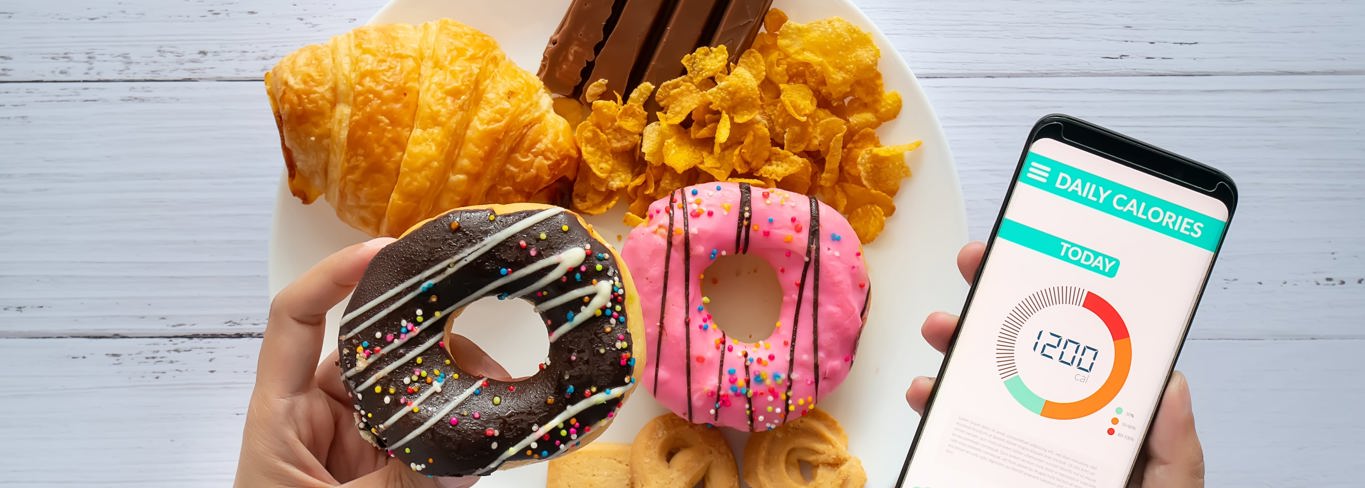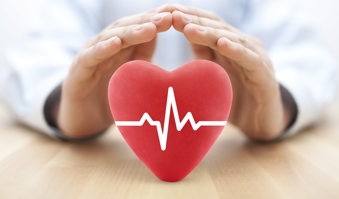Eating The Right Amount of Calories for Your Age: How Much Do We Really Need?
 09 Mar, 2023
09 Mar, 2023
Explore the science of caloric intake based on age. Learn to eat the right amount of calories for optimal health and well-being. Click here to know more!
Daily Intake and Management of Calories with Age
When we talk about calories, most people think of foods with a lot of fat and sugar. Most of these foods are also very delicious, satisfying, and tasty. How many calories you need each day is not a one-size-fits-all number. The amount of calories you should be eating depends on a variety of factors. But one of the most important things to remember is that your calorie needs change as you age.
Quick Read Section
- Many factors go into determining your calorie needs, such as age, weight, height, and activity levels.
- Knowing how many calories you need each day and how the calories in your preferred foods add up are crucial.
- To control your weight, you must monitor your calorie consumption.
- The recommended daily calorie intake for males and women, respectively, is 2500 calories and 2000 calories.
- Exercise is the best method to burn more calories and lose weight.
In this article, you will find information on how many calories you need to consume per day, and how to manage your calories to cater to your weight goals.
What is meant by calorie intake?
Calories are an estimate of the energy contained in the food we eat. Calorie intake refers to the number of calories you should ideally be consuming in a day. Your daily calorie intake is not a defined figure as it varies from individual to individual. It depends on various factors such as your age, lifestyle, gender, metabolism rate, height, and weight. Illnesses you suffer from, medicines, and the hormones produced by the body also affect your calorie intake.
How many calories should I eat in a day?
Keeping a watch on your calorie intake is necessary to control your weight. The number of calories you can eat in a day depends on your individual needs. Generally, men require extra calories than women. Calorie intake also depends on your activity levels. People who work at desk jobs require lesser calories than people with a more active lifestyle. Another factor is age, younger individuals require more calories than older people as their metabolism rates are higher.
Your daily calorie intake limit depends on your weight goals, and on whether you want to maintain your weight or lose or gain weight.
- How many calories should I intake to maintain weight?
Energy in equals energy out! The best way to maintain your weight is to balance the calories that you consume with the calories you burn. The advised calorie limit in a day is 2000 calories and 2500 calories for women and men respectively.
The table below shows the recommended calorie intake in a day as per your age.
|
GENDER |
AGE |
DAILY CALORIE INTAKE |
|
Female |
4- 8 years |
Between 1200-1800 |
|
9-13 years |
Between 1400-2200 |
|
|
14-18 years |
Between 1800-2400 |
|
|
19-30 years |
Between 1800-2400 |
|
|
31-50 years |
Between 1800-2200 |
|
|
Above 50 |
Between 1600-2200 |
|
|
Male |
4- 8 years |
Between 1200-2000 |
|
9-13 years |
Between 1600-2600 |
|
|
14-18 years |
Between 2000-3200 |
|
|
19-30 years |
Between 2400-3000 |
|
|
31-50 years |
Between 2200-3000 |
|
|
Above 50 |
Between 2000-2800 |
- How many calories should I intake to lose weight?
If you’re looking to lose weight, the first thing you should be aware of is that weight loss is a slow process. Consistent efforts and setting realistic weight goals are required to shed those extra pounds and achieve your desired weight. On average, reducing your daily intake by 500 calories is needed to lose one pound per week.
The best way to reduce calorie intake and lose weight is through exercise. Working out daily will help you reach your desired weight more quickly without compromising on food. In this way, you can also consume all the nutrients required by eating a balanced diet. Include foods that are rich in protein, fiber, minerals, and vitamins but low in calories in your everyday diet. The body stores the excess calories for later if we consume more than the required calories. This will result in fat accumulation around the hips and abdomen, known as love handles. Consult a dietician to plan your diet and exercise regime to lower your calorie intake.
- How many calories should I intake to gain weight?
While some try hard to lose those calories, there are others who wish to gain calories too. Adding calories is much easier than losing them. To gain weight, you should not just eat more but make sure that you eat more that’s healthy. Include protein-rich foods that are high in calories along with healthy fats and grains in your diet. Add legumes, nuts, and seeds as extra calories to your meals. Another way is to consume high-calorie liquids like smoothies, milk, fresh fruit juices, and shakes.
What happens to the body when calorie intake is very low?
Reduce your calorie intake if your weight is more than the recommended range for your height. You will lose weight if you consume lesser calories than you burn. However, make sure that your intake does not drop lower than 1,200 calories per day, as it can lead to a deficiency of nutrients in the body. A low-calorie diet can also affect the body’s metabolism, switching on the body’s conservation mode that makes it even more difficult to shed weight.
What are empty calories?
Calories contained in processed foods that are composed of sugar and unhealthy fats are known as empty calories. Consuming these empty calories is not healthy and does not provide any nutrients to the body. While they do fill your stomach, empty calories are not satisfying and can cause you to feel hungrier than before. You also end up feeling tired and drained because of a lack of nutrients.
Make sure to eat more fruits and vegetables, whole grains, seeds, and nuts daily than consuming empty calories.
How does your metabolism rate affect calorie intake?
People with a fast metabolism burn more calories at rest and during activity than those with a slow metabolic rate. A higher metabolism rate means you'll need to take in more calories to maintain your weight. That's one reason why some people can eat more than others without gaining weight; their bodies are burning off excess calories as heat. When you lower your calorie intake, your body senses that food is scarce and lowers the rate at which it burns calories so as not to waste energy by burning off too much fat too quickly.
Why knowing your calorie intake is important?
It's crucial to know how many calories you're taking in compared to how many your body actually requires, as well as where those calories are coming from. You can find out how many calories you should consume each day by getting in touch with a certified dietitian. They can offer guidance on how to adjust meals and exercise based on variables like age, sex, medications, lifestyle, past weight history, family history, and level of activity.
It is important to have a sense of your daily calorie needs and to be aware of how the calories in your favorite foods add up. However, you don't have to obsess over calories to stay healthy, as many people lose weight by focusing on the quality of the food and portion control.
Having health insurance coverage helps protect you and your loved ones against unexpected medical expenses. When it comes to purchasing health insurance, our team of insurance experts will guide you through every detail and ensure that our insurance quotes match your requirements.
Contact us today for all your health insurance needs!


Elevate Your health Coverage to the Next Level!
Congratulations on taking the first step towards securing your health!
Now, imagine having even greater peace of mind with our Comprehensive Health Insurance plan.
Enjoy enhanced coverage, wider scope, and ultimate protection for you and your loved ones.

 Buy Now
Buy Now Online Plans
Online Plans



